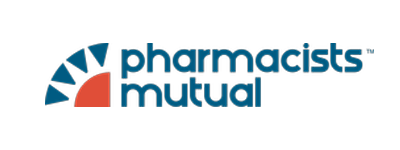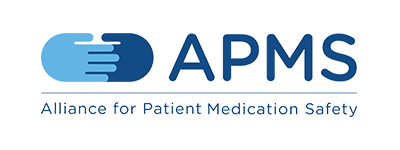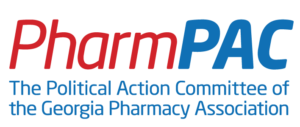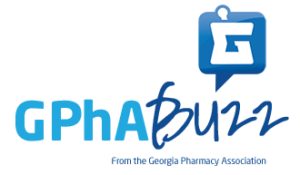Legislative update: 2019 week 5
Week 5 of Georgia’s 2019 legislative session was a busy one for all involved, including GPhA. Several healthcare and pharmacy related bills were introduced this week (see below), including GPhA’s two legislative priority bills.
Additionally, several healthcare bills we are monitoring began to make their way through the general assembly. Through it all, GPhA continues to work to support pro patient/pro pharmacy legislation and to provide feedback on legislation which, while well intentioned, may have unforeseen consequences.
Pharmacists at the Capitol
For our pharmacist members, our Pharmacists at the Capitol events are an opportunity to get involved and be heard. With our anti-steering legislation set to hit the House floor, we need pharmacists at the Capitol now more than ever. The stakes couldn’t be higher.
Please signup today for one of our Pharmacists at the Capitol events by going to GPhA.org/atthecapitol.
- Wednesday, February 27 – 10:00 a.m. to noon
- Wednesday, March 6 — 10:00 a.m. to noon
- Wednesday, March 13 — 10:00 a.m. to noon
GPhA legislative priorities introduced in week 5
HB 233: PBM Anti-Steering
Introduced by Representative David Knight, this bill seeks to prohibit PBM and insurer-owned pharmacies from filling prescriptions that were received via prohibited referrals from their PBM and insurer affiliates.
The background: Pharmacies affiliated with PBMs and insurers are utilizing their relationships to target patients via steering and data mining. These practices compromise patient care and choice, and — despite assertions by PBMs and insurers to the contrary — can lead to waste and increase costs. That’s why most healthcare providers, including physicians, are subject to anti-steering/self referral laws. This bill seeks to rein in these practices by:
- Prohibiting pharmacies owned by PBM and insurance affiliates from poaching patient information for profit (i.e., non-patient care purposes).
- Prohibiting pharmacies from receiving and billing for self-dealing referrals from their affiliates;
- Prohibiting pharmacies from mailing drugs when a physician indicates a direct pharmacy consultation is necessary;
- Requiring pharmacies to disclose affiliates; and
- Treating violations as an unfair and deceptive trade practice subject to attorney general oversight.
The nation is watching Georgia. Subjecting healthcare providers anti-self-referral laws is nothing new, but this legislation is already being closely monitored across the country. It represents a fresh approach to dealing with the plague of patient steering and how it negatively impacts patients who take specialty and chronic disease medications.
GPhA is working in close partnership with the Georgia Society of Clinical Oncology to advance this legislation — a bill that has enjoyed unprecedented support from the House of Representatives. We are proud to report this bill has more than 90 cosponsors including several key and prominent committee chairs. (The bill has been assigned to the House Health and Human Services Committee which is chaired by Representative Sharon Cooper, a top-five cosponsor of this piece of legislation and long-time champion of patient choice.)
Click here for the list of members of the House Health and Human Services Committee. If you are a constituent of one of these representatives, please reach out to let them know how important this bill is for Georgia’s patients and ask for their support.
HB 323
An update to the Pharmacy Patient Protection Act of 2017 (which became a national model) and a companion bill to HB 233, this GPhA-priority bill was also introduced by Representative Knight and enjoys support from key leaders in the Georgia House. This bill looks to do the following:
- Strengthen Georgia’s anti-mandatory-mail-order provisions;
- Prohibit prospective and retroactive fees including those that are performance based;
- Extend protections of the Patient Protection Act to patients of other dispensers such as oncologists;
- Prohibit PBM steering;
- Prohibit credentialing;
- Prohibit delaying care for prior authorizations; and
- Require PBMs to pass along rebate savings to patients.
This sweeping piece of legislation has been assigned to the House Insurance Committee. Click here for a link to the list of committee members. If your state representative sits on that committee, please be sure to reach out and let them know how important this legislation is and ask for their support.
Other legislation introduced in week 5
Beyond advocating for GPhA’s legislative priorities, GPhA also monitors other legislation that impacts the practice of pharmacy. We not only want to keep you abreast of changes, we also want to be sure, when necessary, pharmacists are heard on these issues.
HB 213: Hemp farming
Introduced by Representative Corbett, this bill seeks to create the Georgia Hemp Farming Act. The stated intent of this legislation is, amongst other things, to promote the exploration of the cultivation and processing of hemp (not marijuana), the potential to open up new commercial markets for farmers and businesses, and to explore the expansion of the state’s hemp industry.
This bill authorizes and sets forth a process for hemp growers to obtain a license for cultivation. Additionally, the bill empowers University System of Georgia universities/colleges to engage in research on hemp cultivation and use. GPhA will continue to monitor and report on this legislation.
HB 214: Vaccine protocol agreements
Representative Stephens introduced this legislation seeking to remove geographic limitations on physicians entering into vaccine protocol agreements with pharmacists. This would mean a pharmacist no longer has to be located within the county (or even in a contiguous county) of a physician. GPhA supports this legislation.
HB 256: Controlled Substance Act exceptions
Introduced by Representative Scoggins, this bill looks to revise the exception to the controlled substances act allowing persons authorized by law to dispense, prescribe, manufacture, or possess controlled substances to specify that the exception applies only when such persons are acting in the usual course of their business or employment.
GPhA and several other provider groups are engaged with the author of this legislation in an effort to ensure there are no unforeseen consequences to providers acting on behalf of their patients but perhaps outside of the norm in terms of everyday usual course of business.
HB 290: HIV prophylaxis
Representative Cooper introduced this legislation that would create a pilot program to provide preexposure prophylaxis drug assistance or services to persons at risk of being infected with HIV. GPhA is supportive of this legislation.
HB 324: Low-THC oil cultivation and sale
Introduced by Representative Gravely, the bill would allow the cultivation and sale of low-THC oil to patients with certain conditions authorized to receive it for treatment. It would create an Office of Low THC Oil Control (under the Department of Community Health) and would set requirements for certain production license classes and retail outlets.
While GPhA remains neutral on the issue of cultivation and sale of marijuana in Georgia, we believe that, if low-THC oil is to be sold in Georgia for medical purposes to patients with designated conditions, those patients should be afforded access to the care of pharmacists for, amongst other things, consultation; drug regimen review; and monitoring for drug interactions, adverse effects, and medication adherence.
As of now, the bill does not include patient access to a pharmacist, so GPhA will engage with legislators on this issue in the weeks to come. GPhA also continues to review and assess other elements of this bill.
SB 106: Medicaid waivers
This bill, introduced by Senator Tillery, would grant the Department of Community Health the authority to seek a Medicaid waiver to expand Medicaid benefits to some Georgians via bringing in more federal dollars.
Titled the Patient’s First Act, the bill authorizes DCH to submit a waiver request to the U.S. Department of Health and Human Services and for the governor to submit applications for federal funds via waiver of applicable provisions of the federal Patient Protection and Affordable Care Act. This bill appears to be a priority for Governor Kemp and is supported by GPhA.
Updates on legislation previously introduced
HB 42: Student loan default protection
Representative Turner’s bill restricting state boards from taking action against licensees based on federal student loan default was favorably reported by the House Higher Education Committee.
HB 63: Anti-step therapy
Representative Sharon Cooper’s step therapy bill was favorably reported out of the House Insurance Committee. This bill seeks to protect patients from onerous step therapy requirements under certain circumstances including when a medication is contraindicated; and is expected to or has already proven to be ineffective.
HB 158: Medicaid patients access to antivirals
Representative Silcox’s bill granting Medicaid recipients access to certain retro antiviral medications was favorably reported by the House HHS Committee. GPhA remains in support of this legislation.












